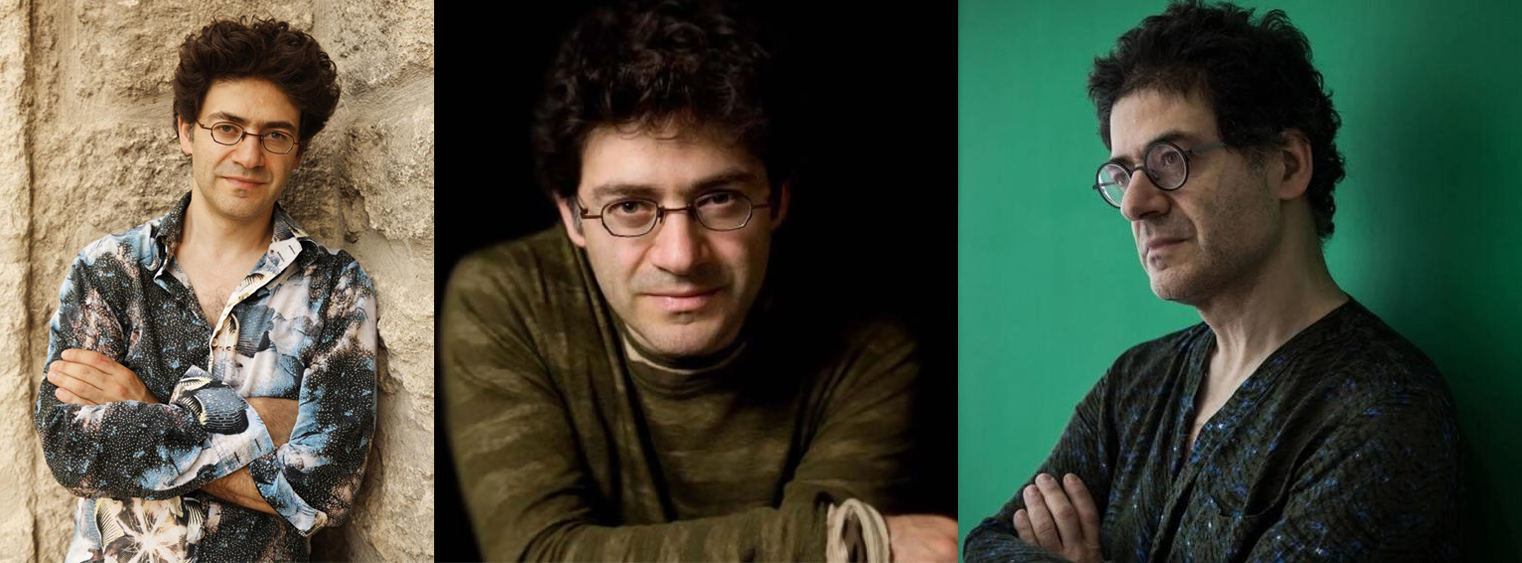From left to right: Photograph of Wajdi Mouawad courtesy of CRDL-Festival Avignon, Mouawad photographed by Mathieu Girard, and Mouawad photographed by Simon Gosselin.
“Theatrical” perhaps best describes the current state of Lebanon’s performing arts scene, which seems to be embroiled in its own drama in recent days. Early this year, we bade farewell to the director and actor duo Antoine and Latifa Multaqa, pioneers of Lebanese theater’s 1960s avant-garde era and, for a moment, relished in nostalgia for Beirut’s culturally vibrant bygone days. Unfortunately, such rose-tinted memories have little room under the stifling atmosphere overtaking much of Lebanon’s arts and culture. The latest to spark an outcry in media headlines follows the decision by Beirut’s Le Monnot Theatre to cancel France-based Lebanese-Canadian writer, actor, and director Wajdi Mouawad’s play “Wedding Day at the Cro-Magnons,” which had been slated to show in 2024, after pressure and threats against the director.
Initially written in 2008, “Wedding Day at the Cro-Magnons” follows an absurd yet tragic event in the lives of a Lebanese family preparing to celebrate the wedding of their eldest daughter, who is narcoleptic, as the civil war (1975-1990) wages on around them. The play was presented in London in 2008 by director Patricia Benecke to a lukewarm reception. However, Lyn Gardner in the Guardian commended Mouawad’s exploration of how “continual exposure to violence infects all aspects of life” and “the human instinct to try to maintain some kind of normality even amid the carnage.”
From the synopsis alone, “Wedding Day” doesn’t raise any alarms. Yet Mouawad’s mere presence in Lebanon has prompted a full-fledged boycott against the director, leading to the play’s cancellation and a smear campaign against him. Those familiar with the director’s previous works know Wajdi Mouawad is no stranger to controversy, having come under fire numerous times for his casting of French singer Bertrand Cantat, who was convicted of murdering his partner Marie Trintignant in 2003, as an actor in his play “Women” (Des Femmes, 2011) and one of the music producers in his autobiographical play “Mother” (Mère, 2021).
The recent controversy surrounds his play “All Birds” (Tous des oiseaux, 2017), a Romeo and Juliet-esque story that stepped on many toes for exploring a romance between Eitan, a scientist of German Jewish descent, and Wahida, an American grad student of Arab Moroccan descent, along with the complexities of navigating the contradictory history and reality between Palestinians and the Israeli occupiers. Activists reported Mouawad to the Military Prosecutor’s Office on charges of normalization and supposed links with Israel.
Excerpted from Elie Chalala's “Drawing the Curtains on Wajdi Mouawad’s ‘Controversial’ Play: Lebanese Intellectuals’ Defense of Director Warns of State Chokehold on Freedom of Expression,” which appeared in Al Jadid Magazine, Vol. 28, No. 85, 2024 and Inside Al Jadid Reports, No. 81, 2024.
Copyright © 2024 AL JADID MAGAZINE

